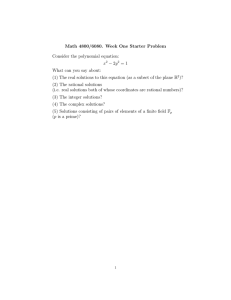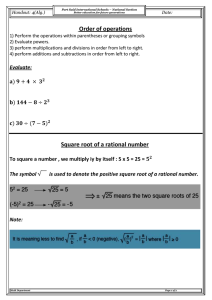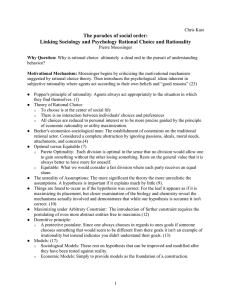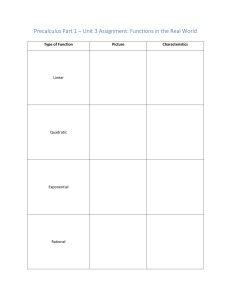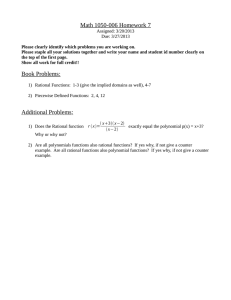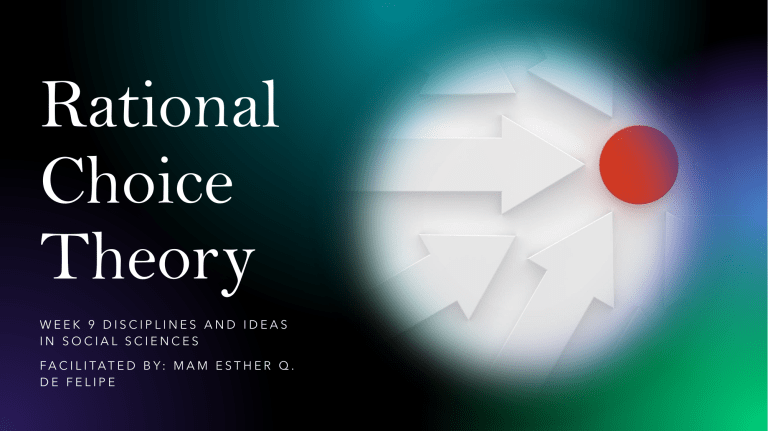
Rational Choice Theory WEEK 9 DISCIPLINES AND IDEAS IN SOCIAL SCIENCES FA C I L I TAT E D B Y: M A M E S T H E R Q . DE FELIPE Review: WHO IS THE FATHER OF PSYCHOANALYSIS? WHAT ARE THE 3 LEVELS OF MENTAL LIFE? WHAT ARE THE 3 PROVINCES OF THE MIND? Rational Choice Theory It is the view that people behave as they do because they believe that performing their chosen actions has more benefits than costs. That is, people make rational choices based on their goals, and those choices govern their behavior. an advantage or profit gained from something. an amount that has to be paid or spent to buy or obtain something. Assumptions of Rational Choice Theory INDIVIDUALISM OPTIMALITY STRUCTURES SELF-REGARDING INTEREST RATIONALITY Individualism It is the ability of individuals to ultimately take actions. (Independent, self-reliant) Optimality • Individuals choose their actions optimally, given their individual preferences as well as the opportunities or constraints with which the individuals face. (best or most effective) Structures • These structures and norms that dictate a single course of action are merely special cases of rational choice theory. Self-Regarding Interest • This assumption states that the actions of an individual is concerned entirely with his/her own welfare. Rationality • It is the most predominant assumption of the rational choice theory. Strengths GENERALITY PA R S I M O N Y PREDICTIVE Generality • This means that one set of assumptions relating to each type of actor in a given circumstance is compatible with any set of assumptions about the environmental setting in which the actor is present. Parsimony • cheapness/frugality; extreme unwillingness to spend money or use resources; The common knowledge of rationality assumption. Predictive • Used to produce a wide variety of decisive theories, whose predictions about the measurable real world phenomena rule out a much larger set of outcomes that what is already general. What do you think are the weaknesses of Rational Choice Theory? BUDDY TASK: Do a Cost and Benefit Analysis of Going to College after SHS. COST BENEFIT Conclusion: ________________________________ Thank you very much for your active participation.

